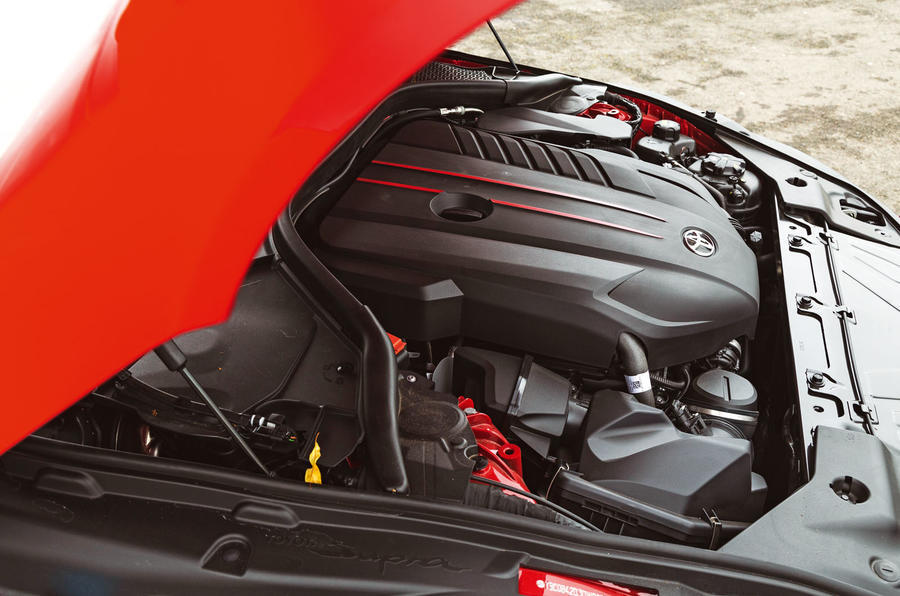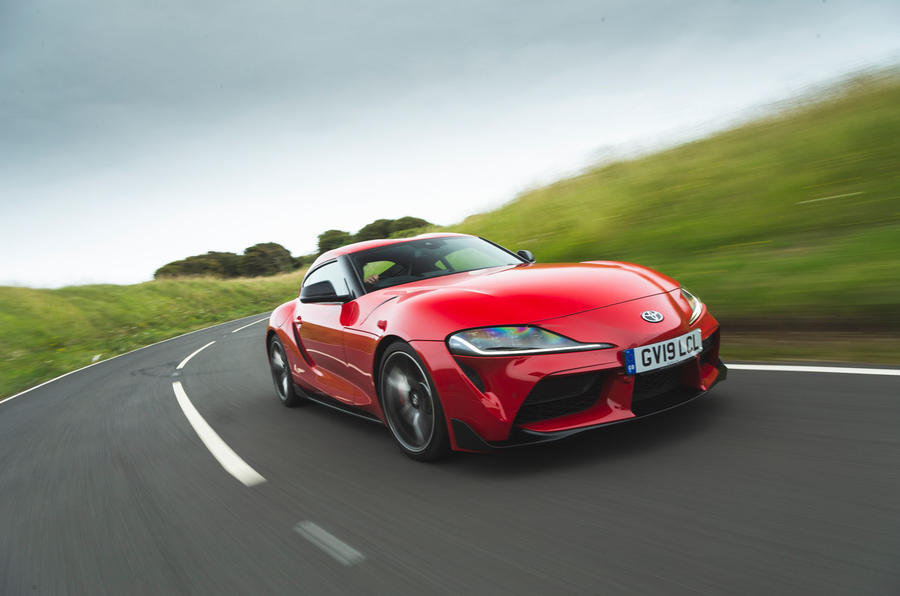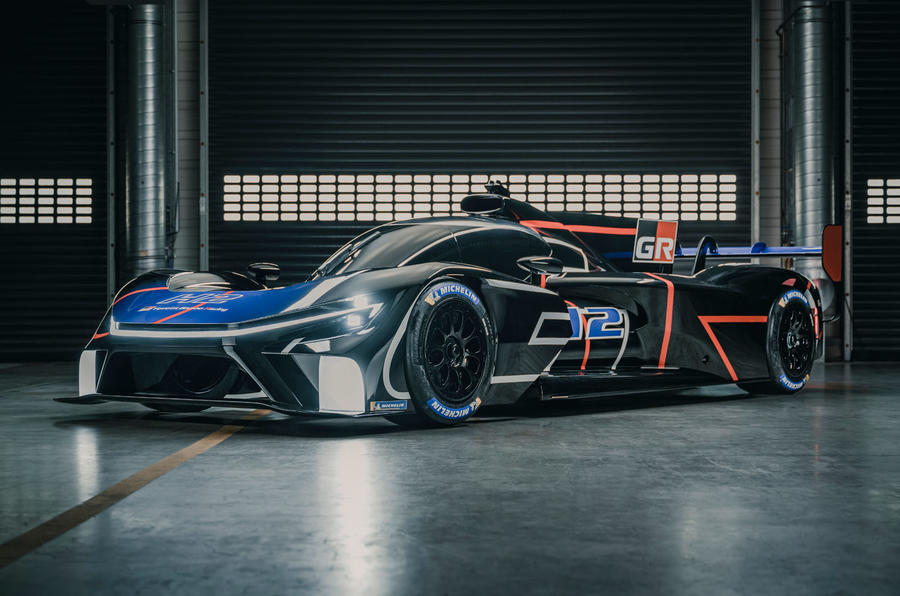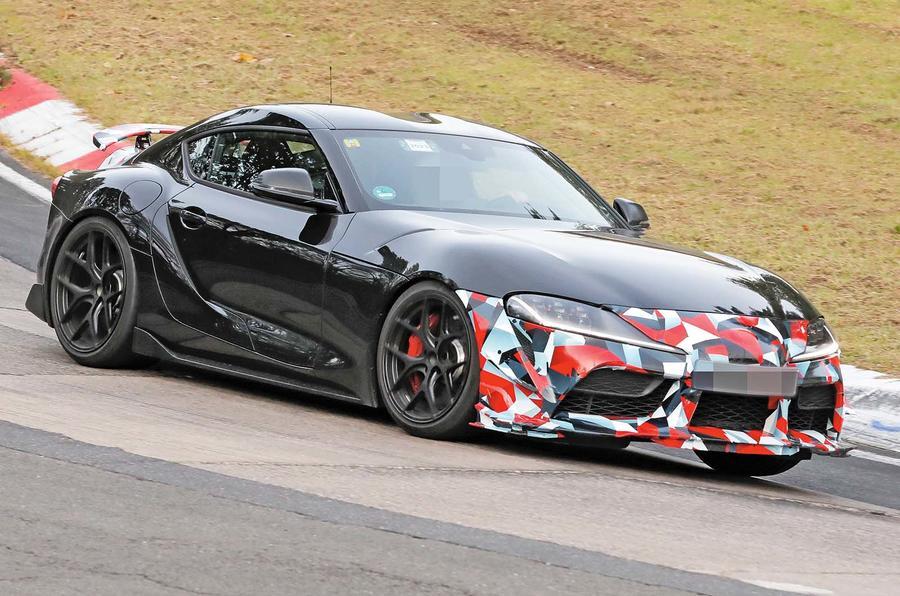Toyota's GR performance division plans to use hydrogen to keep its combustion-engined sports cars on the road – but infrastructure shortcomings prevent it from being an immediate solution.
The GR division, which has its roots in Toyota's Gazoo Racing motorsport operation, currently sells four cars: the GR Supra, the GR86, the GR Yaris, and, in the US, the GR Corolla, each of which is powered by a petrol engine.
Toyota recently revealed the FT-Se concept as a preview of GR's first EV and has detailed a number of initiatives on which it's working to ensure that electric sports cars are suitably engaging. However, it hasn't put a timeframe on their arrival and has voiced no plans to phase out its petrol cars.
Now GR manager Masahito Watanabe has said that all-out electrification isn't a priority for the sub-brand, pointing to Toyota's highly publicised efforts in recent years to develop hydrogen-combustion technology as a potential lifeline for its piston engines.

"We still think the internal combustion engine has some potential and, as we do so, we will of course be trying to comply with all the applicable rules according to the regions in each country," he said.
"But we don't want to give up. It's not over just yet, because if you look at the internal combustion engine, there's still hydrogen combustion that can be a part of that zero-emission line-up, so I think that's going to continue.
"As you see in the [FT-Se], we still see high possibility for battery EVs, but what we want to do is pursue the multi-pathway [approach] that we've been seeing in motorsports and sports cars in general."
Toyota’s multi-pathway approach manifests in a product plan that includes 15 battery electric cars by 2026 but still leans heavily on hybrid technology in a bid to provide maximum choice for consumers.











Join the debate
Add your comment
Asia not going electric? The fastest growing EV market is China, which also the world's biggest car market. If Toyota want to hang on to their global status, they need to invest in EVs, not hydrogen. Traditional car makers are in trouble and Chinese EV makers like BYD look likley to eat their lunch, just like the Japanese brands did in the 1970s.
Hydrogen used in fuel cells just isn't going anywhere for passenger cars, and even Toyota are virtually admitting as much now - even if they are still maintaining it's got a place in heavy trucks.
And if it's problematic used in a fuel cell, the economics make even less sense in a combustion engine, where it's use is even less efficient than via a fuel cell. Plus, even if no CO2 out of the tailpipe, there's still NOx emissions to consider.
The uphill struggles facing hydrogen as an energy store for transport are largely down to physics - not engineering, which makes any progress much more difficult, if not impossible. As example, the best that can be achieved for car storage is very high pressure at 700 bar, requiring very expensive pressure tanks. There is virtually no scope to ever get storage at higher pressure as even by 700 bar the molecules are so tightly squeezed that even much higher pressures don't fit much more gas in. In technical terms, it's already well past the point where Boyle's Law has broken down.
It's also far more difficult to transport to a filling station. Compared to petrol, the weight of the pressure vessel accounts for a far, far higher percentage of tanker payload. Like for like, a filling station would need about 10-14 x as many deliveries to service the same number of cars as petrol tanker deliveries.
It's all pointing to it being highly unlikely that any significant car fuelling network for hydrogen will be built any time soon - if ever. Shell closing their hydrogen stations (and cancelling plans to open new ones) more or less closes the door. So who in their right mind will buy a hydrogen fuelled combustion car, way more expensive to run than an equivalent petrol model, with virtually nowhere to refuel it!?
Hydrogen for cars may have seemed sensible 20-25 years ago, with no real alternative to cleaning up exhausts, but the huge improvements in batteries, and huge drops in their prices, have made hydrogen totally uncompetitive. It's only being kept alive at all by vested interests.
Agree 100% Davey. EVs go 3x as far on the same amount of energy as Hydrogen Fuel Cell vehicles.
What Parent car company has said they are going to stop making cars post 2035, even if any parent car company has it might be for public relations reasons, they can go on making ICE cars until there's no profit.